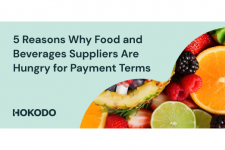What consumers really think about GM labelling

The study − carried out by Define Research and Insight − also revealed that consumers’ awareness of the current labelling requirements was low.
GM food is just one of a number of controversial new technologies to be discussed in a free one-hour long webinar to take place at 11am GMT on Thursday January 24. Book your free place here.
Meanwhile, the research into consumers’ attitudes towards labelling discovered a “slight preference” for labelling indicating the presence of GM rather than the absence of GM.
‘Completely free of any GM’
Also, consumers expected products labelled as ‘GM-free’ to be completely free of any GM ingredients.
FSA chief scientist Dr Andrew Wadge is taking part in the free webinar to be staged later this month. Wadge will explain how regulatory frameworks can help to introduce clarity in the debate about controversial food technologies such as GM food, irradiation and nanotechnology.
Also taking part will be consumer watchdog Which? and Leatherhead Food Research (LFR).
Sue Davies, chief policy adviser Which?, will place the debate in the framework of consumer acceptability.
LFR principal consumer analyst Nicole Patterson will reveal recent research that uncovers consumers’ perceptions about the communication and application of nanotechnology and GM topics.
Science and technology
The webinar is aimed at anyone in the industry who welcomes a debate based on science and technology rather than mere prejudice. It will also be particularly useful to food sector communicators, food science and technology policy makers, and government science policy makers.
Organised by the Institute of Food Science & Technology (IFST) and FoodManufacture.co.uk, the webinar titled ‘Food fact and fiction, separating science from myth’ will take place at 11am GMT on Thursday, January 24, 2013.
Book your free place for this hour-long webinar here.
During the session, you will be able to put a question directly to our expert panel.
Alternatively, email questions in advance to zvpunry.fgbarf@jeoz.pbz.
Consumer attitudes to GM labelling conclusions
- Consumer awareness of labelling rules is low
- Participants typically did not seek information or labelling with regard to GM foods. Only 2% looked for information about GM content when buying food products for the first time
- Slight preference for labelling indicating the presence of GM, rather than labelling indicating the absence of GM
- Labelling foods to indicate the absence of GM ingredients can result in a number of expectations. For example, participants expected a product labelled as ‘GM-free’ to be completely free of the use of GM.
- Participants were unaware of the use of GM animal feed by farmers. Once made aware of its use, they typically considered that products from animals fed GM feed should be labelled, consistent with previous FSA research.
Source: FSA




















